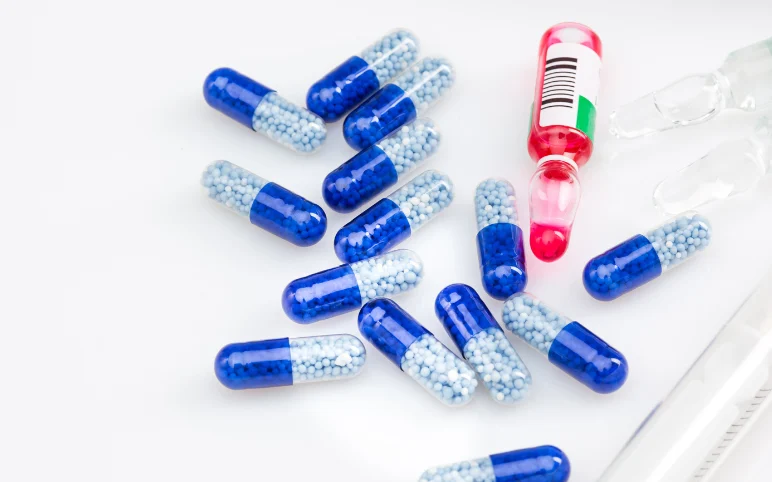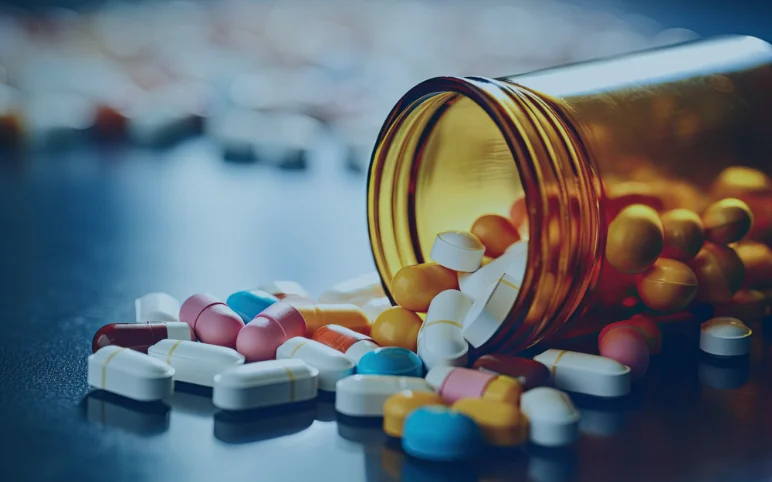Eli Lilly’s Obesity Treatment Drug Candidates – A Show for the Competitors
Jul 03, 2023
On 26 June 2023, the rush to develop obesity therapies appeared to have raised the bar, as an experimental weight-loss drug from US pharma company Eli Lilly yielded the greatest effects of any treatment observed thus far.
The American Diabetes Association’s annual meeting has brought the competitive dynamics of obesity clinical development to the limelight after the data was presented on Lilly’s new obesity medication. Retatrutide – a Lilly product – has helped approximately 24% of people struggling with weight, the highest reported by any active drug. It targets GIP, GLP-1, and glucagon – a triple agonist.
The double-blind, randomized, placebo-controlled Phase II study comprised 338 adults (52% men) with a BMI of 30 or above, meeting the clinical definition of obesity, or with a BMI between 27 and 30. At 24 weeks, retatrutide (1mg, 4mg, 8mg, or 12mg) met the primary goal for the efficacy estimate in patients with obesity or overweight without diabetes, exhibiting a mean weight loss of up to 17.5% (41.2 lb. or 18.7 kg). However, in a secondary endpoint, retatrutide revealed a mean weight decrease of up to 24.2% (57.8 lb. or 26.2 kg) at the end of the 48-week obesity treatment period.
Downloads
Click Here To Get the Article in PDF
Recent Articles
- Business Cocktail
- Neuroendocrine Tumors (NETs): Unraveling the Mystery of a Complex Cancer
- Boston Scientific Pushes Forward Despite $200M Tariff Challenge; Northstrive Biosciences Gets FDA...
- The Obesity Pandemic: What Can we do About it?
- Another Feather in the Cap for Xtandi and Keytruda — The Two Main Cancer Drugs
Novo Nordisk’s GLP-1 receptor agonist Wegovy (semaglutide) is the only approved drug in the market since 2021 for chronic weight management, showcasing around 16% body weight reduction in 68 weeks. Wegovy, the first to market, has had a successful year so far, but Lilly is closely following and might even show exceptional performance and prove to be the best-in-class drug, grabbing maximum patient share in the obesity treatment market in the next 10 years.
Mounjaro, an already available product for diabetes, seems quite promising for patients battling obesity and has already helped with nearly 22.5% weight reduction. Retatrutide is currently in Phase III and under review by the FDA; we expect they might get approval by the second half of this year, fueling the competition with Novo Nordisk and Pfizer. All it awaits is the FDA stamp!
Some KOL quotes after this data readout:
“We believe that combining glucagon receptor agonism with GIP and GLP-1 receptor agonism may be one of the reasons retatrutide showed this level of weight reduction.”
Chief Scientific and Medical Officer, Eli Lilly
“I have never seen weight loss at this level” after nearly 1 year of treatment.”
The Study Lead
“The average weight loss by study participants taking high-dose retatrutide in the two studies is really impressive, way beyond my wildest dreams.”
An Obesity and Diabetes Researcher at University College Dublin, Ireland
“It’s stunning; we are now witnessing the first triple-hormone combination being highly effective for not only weight loss but liver disease and diabetes.”
Chief Scientific and Medical Officer of the ADA
Late-stage competitive dynamics:
Pfizer’s Failure Give Eli Lilly an Edge in Obestiy Treatment Space
As the race to develop anti-obesity drugs heats up, Pfizer said that it will discontinue its once-daily experimental obesity pill due to “concerns about liver,” but will continue to develop the twice-daily treatment danuglipron. In the oral weight-loss treatment drug market, this puts Pfizer at a competitive disadvantage with Lilly and Novo.
According to Pfizer, increased levels of the enzyme transaminase were found in lotiglipron Phase I and Phase II investigations. Increased levels of this enzyme can be indicative of liver disease or drug-induced liver damage. Despite these findings, Pfizer claims that no trial participants reported “liver-related symptoms or side effects, there was no evidence of liver failure, and none required treatment.”
When it came to the other drug candidate, danuglipron, the company indicated that none of the patients participating in the programme had elevated transaminase levels, and development will proceed based on the outcomes of an ongoing Phase II obesity clinical trial.
Eli Lilly’s Strong Pipeline for Obesity Treatment
Eli Lilly’s obesity pipeline is much stronger than previously thought. Lilly and its competitors are developing weight-loss medications that target the glucagon-like peptide-1 receptor, or GLP-1. This hormone is related to appetite and how quickly the stomach empties itself. Mounjaro includes a second goal, whilst retatrutide focuses on three targets to aid in weight loss.
In order to make it easier to tailor obesity therapy to the patient, Lilly is also developing another weight loss drug orforglipron. Obesity has emerged as a significant possibility for Lilly, with the company revealing positive trial findings on its GIP/GLP-1 agonist Mounjaro. However, as an injectable, Mounjaro can only access a portion of the nascent obesity treatment market, which Pfizer estimates at $90 billion. To completely clean up, Lilly will most likely require leading injectable and oral obesity medications. This is when orforglipron comes into play.

Lilly previously projected that the obesity drug candidate would produce 14% to 15% weight loss in a midphase clinical study, which is lower than Mounjaro’s target but possibly competitive for a more convenient oral option. Lilly’s final results have now been published in The New England Journal of Medicine.
Participants were given one of four orforglipron dosages or a placebo. After 36 weeks, the average weight loss in the placebo group was 2.3%, compared to 9.4% to 14.7% in the orforglipron arms. Lilly observed dose-dependent weight changes in orforglipron patients.
With Lilly and Novo revealing their cards, all eyes are on Pfizer’s impending phase II data. Tolerability may be an issue for Lilly, but other candidates may also have a high rate of side effects. Another question is whether patients will choose oral medication over more potent injectables. In April, Lilly answered the topic on a conference call to announce its first-quarter results. Lilly acknowledged that the lack of a GIP agonist in orforglipron makes it unlikely to equal the weight reduction or metabolic effects of Mounjaro, but claimed that oral solutions are required to address worldwide obesity demand.
If approved, retatrutide and orforglipron will provide physicians with two additional alternatives for treating weight loss. Lilly also intends to obtain commercial approval for tirzepatide, a dual GLP-1 and GIP agonist (already marketed as Mounjaro for type 2 diabetes) for the treatment of obesity. Semaglutide, another GLP-1 agonist developed by Novo Nordisk, is already on the market for the treatment of type 2 diabetes and obesity (sold as Ozempic for diabetes and Wegovy for obesity).
FAQs
Obesity is a chronic health condition that leads to abnormal or excessive fat accumulation or adipose tissue in the body that presents a health risk. It is an imbalance between calories ingested and calories burned.
Obesity symptoms extend beyond increased body fat. It can cause skin problems, shortness of breath, difficulty sleeping, and other symptoms. Some symptoms are even known to raise a person’s likelihood of developing certain diseases and disorders. These can be life-threatening or even fatal in some situations.
The factors responsible for the causes of obesity include heredity, a sedentary lifestyle, excessive fat, sugar consumption (energy-dense meals), certain medications, and endocrine issues. Changes in the environment or society, behavior, and culture have a direct influence.
Obesity treatment aims to reduce body weight and fat percentage to prevent the onset of obesity-related health problems and improve the patient’s overall health. Nutritional therapy includes calorie restriction, meal replacement, and healthy diet plan options tailored to the individual’s needs; exercise and physical activities such as aerobic exercise training, high interval intensity training, cardiovascular training, resistance exercise training, and others; intensive behavioral therapy; therapeutic lifestyle options; weight loss pharmacotherapy, and surgical interventions such as an intragastric balloon.
Drugs available in the current obesity treatment market include Bupropion-naltrexone, Liraglutide, Qsymia, Orlistat, Lorcaserin, and many others.

Downloads
Article in PDF
Recent Articles
- Gilead Buys Out Rights to Cancer Therapy from Jounce; FDA Places Clinical Hold on Biogen’s Orelab...
- Pfizer faces patent loss; Allergan over generics probe; Sun Pharma rallies
- Nordisk ties up with Dicerna; Pfizer’s drug gets FDA nod
- A USD 4.2 Billion Myovant/ Pfizer Deal; Audentes Therapeutics’ ASPIRO Trial Free to Proceed; Firs...
- Novartis eyes; Pfizer considers cashing; Mylan pushes to seal $465M; Valeant with Takeda for deal




